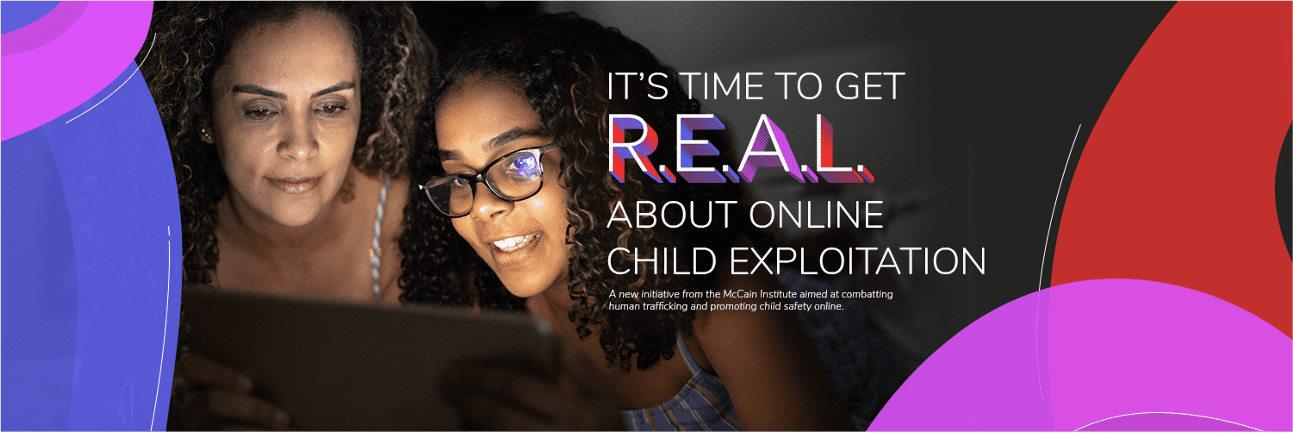
R.E.A.L. Friends Don’t
Although the mechanisms that facilitated state-sanctioned slavery in the United States are no longer in place, the social constructs that create disproportionate rates of poverty, abuse, food, and housing insecurity among communities of color persist. In our work, the impact of national and international systemic racism is glaringly evident in the victim and survivor populations we serve and are proud to call partners. Through commercial sex or forced labor, exploitation affects the most vulnerable, specifically: African American, Latinx, indigenous, and other peoples of color.
While credible nationwide numbers do not yet exist, recent studies and data released by various states confirm that racial minorities are more likely to be victims of sex and/or labor trafficking. These racial discrepancies are not exclusively linked to exploitation in-person but exist online as well, with the youth of color facing significantly higher risks of being victimized online. According to a 2018 study conducted by Thorn, a leading expert in the fight against online child sexual abuse, domestic minor sex trafficking survivors of a racial minority accounted for 74 percent of those who were affected by online enticements and grooming.
One of the many consequences of COVID-19 has been the sharp increase in the number of hours that school-age children spend online, with over 55 million students in the U.S. alone moving to online learning. Recent data suggests that traffic to school-age children’s apps and digital services has increased by nearly 70 percent. Whether it’s schooling, connecting with friends, gaming or using social media, so much of our children’s world has shifted to a virtual environment. Without question, connecting with teachers and classmates, and accessing high-quality educational opportunities and content, is helping to reduce some of the negative impacts of COVID-19. Yet it creates new challenges for parents; namely, how to keep school age children safe online and away from potentially dangerous content or connecting with individuals looking to exploit a young person. The FBI officially warned in March 2020 of the increased risk of online child exploitation, and more recently, federal Internet Crimes Against Children (ICAC) Task Forces, local law enforcement agencies, and the National Center for Missing and Exploited Children (NCMEC) have reported a spike in online abuse cases, with the CyberTipline experiencing a 63.31 percent increase in reports between January and September of this year compared to the same period in 2019.
This current environment has allowed online child sexual exploitation to flourish as children, feeling socially isolated and alone, resort to the internet for human interaction. According to Thorn, there is a clear correlation between the nature of domestic minor sex trafficking (DMST) and technology, as “the need for human connection, and the vulnerabilities that arise in the absence thereof, are central to the recruitment, control and recovery of DMST survivors.” During their research Thorn concluded that 55 percent of survivors surveyed met their traffickers through an online setting such as on a website, or through text messaging or an app, meaning the majority of grooming, enticement and interaction took place online.
Parenting in the time of COVID-19 has been turned on its head – school closures, working from home and social distancing. Parents are being pushed beyond their limits right now, and with online learning continuing into the fall spring is expected this will only exacerbate the vulnerabilities faced by many, however children living in African American and Latinx households remain at increased risk of exploitation. During this time, we need to be offering parents and caregivers simple, clear guidance on how to protect their children. Messaging also must be directed to young people themselves.
To address the increased vulnerabilities faced by millions, the McCain Institute launched R.E.A.L. Friends Don’t, a campaign to increase awareness and educates parents, caregivers, and young people ages 8-16 about online safety and empower parents to protect their children from harmful content, grooming or online exploitation. Using the resources provided on R.E.A.L. Friends Don’t; parents and caregivers are provided simple, clear guidance on how to protect their children as well as conversation starters, and safety guides the social media and gaming platforms kids are most active on.
With everything going on in today’s world, we can’t be there for every click, so let’s make sure our children know how to navigate the digital world safely. Visit realfriendsdont.org to learn more.
Kelsey Syms serves as senior program coordinator for the Combatting Human Trafficking program at the McCain Institute for International Leadership
